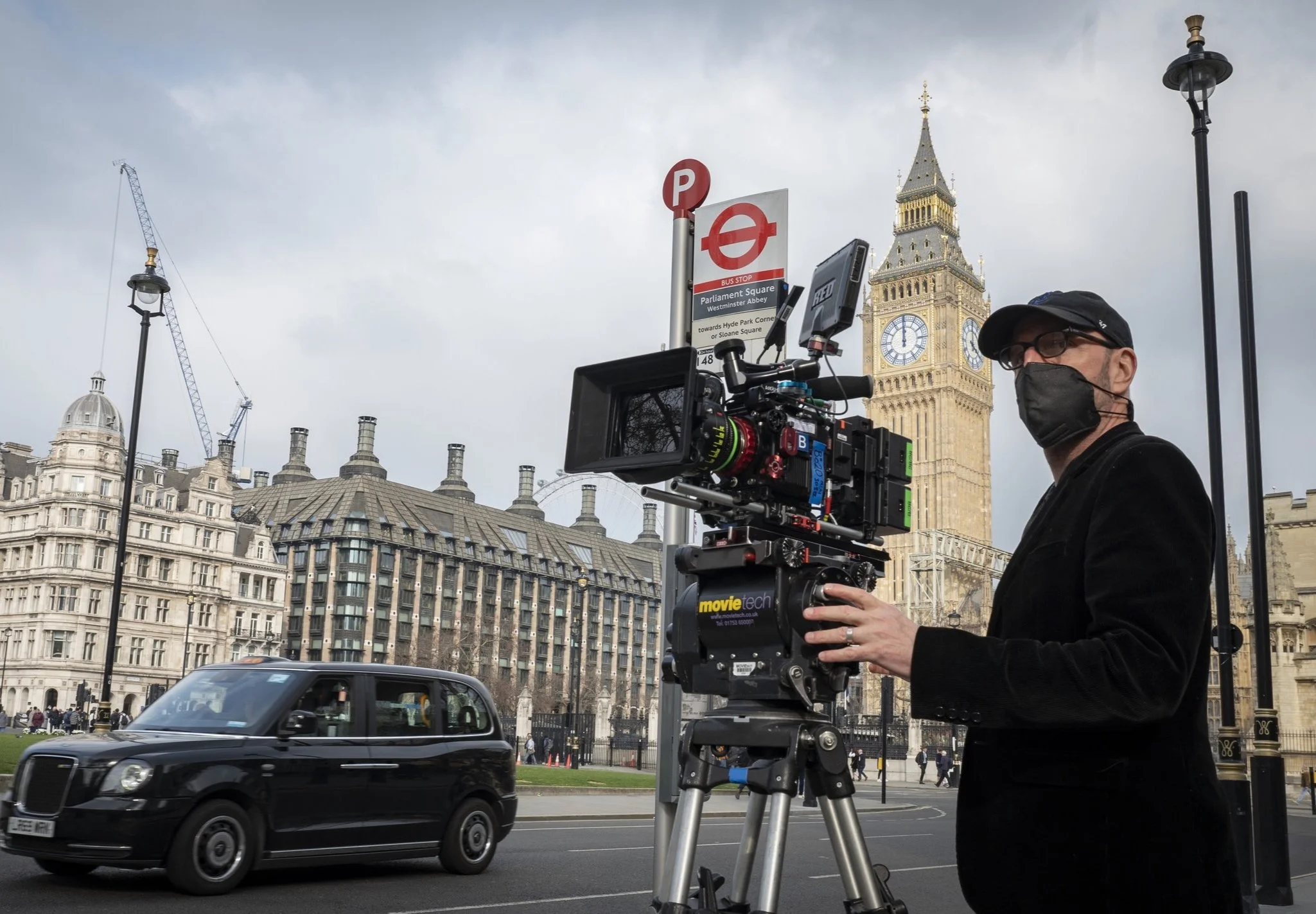British Invasion
Steven Soderbergh shooting Magic Mike’s Last Dance on location in London. Photo: Warner Bros.
Steven Soderbergh’s always had a love affair with British culture. The prosecution may cite Don Cheadle’s dubious cockney accent in the Ocean’s franchise as evidence to the contrary, but I prefer to think of that as an affectionate nod to Dick Van Dyke, one that plays into many a cynical Brit’s misconception that all Americans think we live in Mary Poppins Land. Amusingly, Soderbergh rolls with that view in Magic Mike’s Last Dance, the third instalment of his and Channing Tatum’s stripper odyssey, which relocates the action from sweaty Tampa to soggy London and paints the town not so much red as a kind of toff’s blue, a place where everyone shops at Liberty’s, has a butler and a swanky town house, and goes for dinner with Marcus Brigstocke.
I didn’t love Magic Mike’s Last Dance (you can read my Scotsman review here). Nothing comes close to the first film’s jaundiced look at the fallout from the 2008 financial crisis or the artful way Soderbergh became a crack shot at the crack shot. But I kind of admire the way he affectionately trolls British audiences by making London ridiculous — a little bit of payback, perhaps, for the sniffy attitude that greets any American actor who dares exaggerate or mangle a British accent for comic effect, especially when British actors play Americans this way all the time.
Soderbergh brought this up when I interviewed him a few years ago ahead of the release of Logan Lucky. He asked what I thought of Seth McFarland’s boorish British accent (McFarland played an arsehole ex-pat NASCAR driver). He said the UK distributors told him they were going to have problems with it, that no one would accept it. I asked him how American audiences responded to Daniel Craig’s outlandish Southern bank robber in the same film. His answer? “They love it!”
British cultural hypocrisy notwithstanding, Soderbergh’s Anglophilia is genuine and runs deep. He ended up executive producing the Scottish rave film Beats, for instance, after his obsession with snooker led him to director Brian Welsh’s earlier TV drama The Rack Pack, about the 1980s rivalry between Alex Higgins and Steve Davis. And in his own debut film Sex, Lies and Videotape, he named James Spader’s slippery, sexually impotent, oddball videographer “Graham” — an unusual enough name in an American context for Andi MacDowell’s repressed housewife to comment on it. “My mother is a complete Anglophile,” explained Spader in the film. “Anything British makes her drool like a baby.”
Then there’s his playful, pseudo-filmmaking memoir Getting Away with It: Or, the Further Adventures of the Luckiest Bastard on Earth, which he used as an excuse to interview his idol, fellow Anglophile Richard Lester. Lester started out during the early days of US TV but decamped to London in the mid-1950s, worked with Peter Sellers, and emerged as one of the most irreverent and iconoclastic TV and film directors of the era, putting British pop culture thoroughly on a global stage with The Beatles film A Hard Day’s Night and dragging a war-ravaged country into the modern age in the process.
Lester helped create the visual culture of the Swinging Sixties that in turn paved the way for British New Wave films like Ken Loach’s Poor Cow and British Invasion bands like The Who, two cultural touchstones that Soderbergh would later pay tribute to in The Limey, his ultra-cool, time-shuffling gangster revenge film that sampled scenes from Poor Cow and featured its iconic British star Terence Stamp growling “Tell him I’m coming!” to a series of low-level hoods who have no idea what he’s talking about as he searches for his daughter’s killer after touching down in LA to the strains of — what else? — The Seeker by The Who.
The Limey married Soderbergh’s twin passions for the 1960s British New Wave and the Hollywood renaissance of the 1970s with his own rulebook-trashing 90s indie verve. It remains the creative high point of his Brit love. It’s also his best film. Check it out if you haven’t already.
